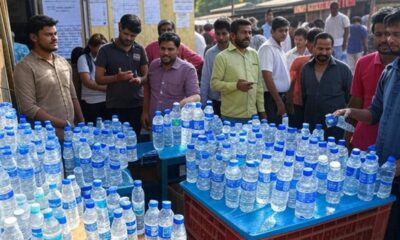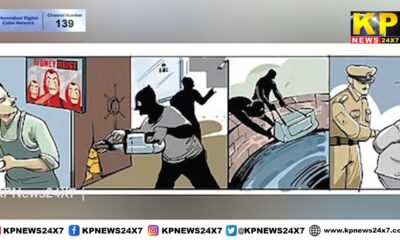Karnataka
Karnataka CID Files Charge Sheet Against B S Yediyurappa in Molestation Case
Karnataka CID files charge sheet against former CM B S Yediyurappa in molestation case involving a minor, following a complaint by the victim’s mother.
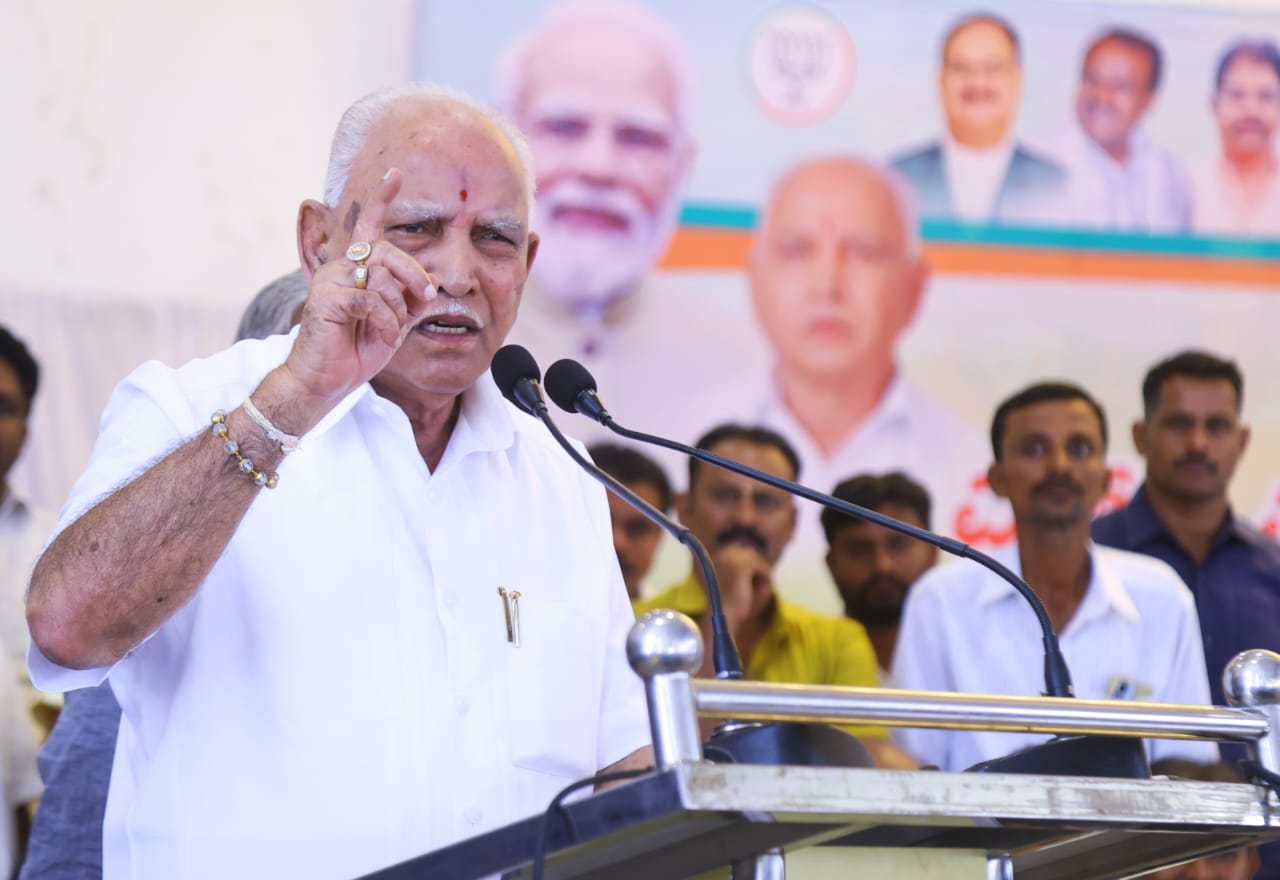
The Crime Investigation Department (CID) probing molestation charges against former Karnataka Chief Minister B S Yediyurappa has taken a significant step forward. On Thursday, the CID filed a charge sheet in the special court dealing with Protection of Children from Sexual Offences (POCSO) cases. This development comes after the Sadashivanagar police registered a case of molestation in March this year against the BJP stalwart. Following the registration of the case, Karnataka Director General of Police Alok Mohan issued an order transferring the investigation to the CID.
The case originated from a complaint lodged by the mother of a 17-year-old girl. She alleged that Yediyurappa molested her daughter during a meeting on February 2nd this year at his residence in Dollars Colony, Bangalore. The allegations have stirred significant controversy, with Yediyurappa vehemently denying the charges. He stated, “People would teach a lesson to those indulging in conspiracies against me,” signaling his intent to fight the accusations.
Tragically, the 54-year-old woman who filed the complaint passed away last month in a private hospital due to lung cancer. Despite her passing, the case has continued to progress under the scrutiny of the CID. On June 17, Yediyurappa was questioned by the CID for approximately three hours in connection with the case. This interrogation marks a critical phase in the investigation as the CID compiles evidence and testimonies to support the charges against the former Chief Minister.
Adding to the complexity of the situation, the Karnataka High Court had previously issued orders restraining the CID from arresting Yediyurappa. This order provides temporary relief to the former Chief Minister, allowing him to remain out of custody while the investigation continues. The high-profile nature of this case, involving a prominent political figure, has attracted significant public and media attention.
B S Yediyurappa
Yediyurappa, a veteran politician with a substantial following, has found himself at the center of this scandal. His denial of the charges and assertion of a conspiracy against him have fueled a narrative of political intrigue and manipulation. Supporters of Yediyurappa view the charges as an attempt to tarnish his reputation and undermine his political standing. On the other hand, detractors argue that the law must take its course, and justice should be served, irrespective of the accused’s political stature.
The CID’s charge sheet filing is a procedural step that indicates the completion of their preliminary investigation. It suggests that the agency believes there is sufficient evidence to proceed with prosecuting Yediyurappa. The special court handling POCSO cases will now review the charge sheet and determine the subsequent legal proceedings. This case is expected to undergo rigorous scrutiny, given the involvement of a high-profile accused and the sensitive nature of the charges.
As the legal battle unfolds, it is likely to impact the political landscape in Karnataka. Yediyurappa’s supporters within the BJP and his broader political base will be closely monitoring the proceedings. The outcome of this case could influence public opinion and potentially alter the dynamics within the party. Conversely, opposition parties may leverage the case to question the BJP’s moral standing and governance.
The allegations against Yediyurappa and the subsequent legal proceedings highlight the broader issue of accountability and transparency in public office. Cases involving accusations of sexual misconduct and abuse of power are critical in shaping public trust in political leaders and institutions. The legal system’s handling of this case will be indicative of its commitment to justice and the rule of law, irrespective of an individual’s social or political standing.
In conclusion, the filing of the charge sheet against B S Yediyurappa by the CID marks a pivotal moment in this high-profile molestation case. The legal proceedings that follow will be closely watched, not only for their judicial outcomes but also for their broader implications on Karnataka’s political landscape. Yediyurappa’s steadfast denial and claims of a conspiracy add layers of complexity to an already intricate case. As the special court examines the charge sheet and moves forward with the trial, the pursuit of justice remains paramount, serving as a reminder of the principles that underpin a fair and democratic society.
Karnataka
Hubli Tragic Incident : Migrant Worker Suspected in Child’s Murder Dies in Police Encounter
In a heartbreaking event that has shaken Hubballi, Karnataka, a five-year-old girl was allegedly kidnapped and killed, sparking outrage in the community. The suspect, a 35-year-old migrant worker from Patna, Bihar, was later killed in a police encounter on Sunday, April 13, 2025, according to authorities. The incident began when the young girl’s body was […]

The shocking incident in Hubli has intensified concerns over child safety and sparked widespread public outrage.
In a heartbreaking event that has shaken Hubli, Karnataka, a five-year-old girl was allegedly kidnapped and killed, sparking outrage in the community. The suspect, a 35-year-old migrant worker from Patna, Bihar, was later killed in a police encounter on Sunday, April 13, 2025, according to authorities.
The incident began when the young girl’s body was discovered in an abandoned shed, prompting a swift response from the Karnataka Police. Using CCTV footage, officers identified the suspect, Ritesh Kumar, who was accused of abducting and murdering the child. Authorities suspect the girl may have been sexually assaulted before her death, though they are awaiting postmortem results to confirm.
As the investigation unfolded, police tracked Kumar to an abandoned house near the Tarihal underpass. According to Hubli-Dharwad Police Commissioner N. Shashi Kumar, the suspect attempted to escape custody, attacking officers by throwing stones and damaging vehicles. In response, Sub-Inspector Annapurna fired warning shots before shooting Kumar in the leg and chest. He was rushed to Karnataka Medical College and Research Institute – Hubli but was declared dead on arrival.
The tragedy has left the victim’s family, originally from Koppal district, in deep grief. The girl’s mother works as a domestic helper and beauty parlor assistant, while her father is a painter. The community rallied outside Ashok Nagar police station, demanding justice and expressing frustration. Some locals called for harsh punishment, while others raised concerns about migrant workers, though the Police Commissioner urged against generalizations.
This devastating case has highlighted issues of child safety and crime in Karnataka, with authorities emphasizing their commitment to justice. The investigation continues as police await further reports to provide clarity on the circumstances of the girl’s death.
Bidar
Heavy Rain Hits Bidar: Thunderstorms Bring Relief and Disruption
On Thursday, April , 2025, Bidar city and several parts of the surrounding taluk experienced a refreshing yet powerful thunderstorm accompanied by heavy rain. According to a recent report by Prajavani, the downpour brought a much-needed break from the heat, cooling down the region and leaving residents with mixed feelings of relief and concern. The […]
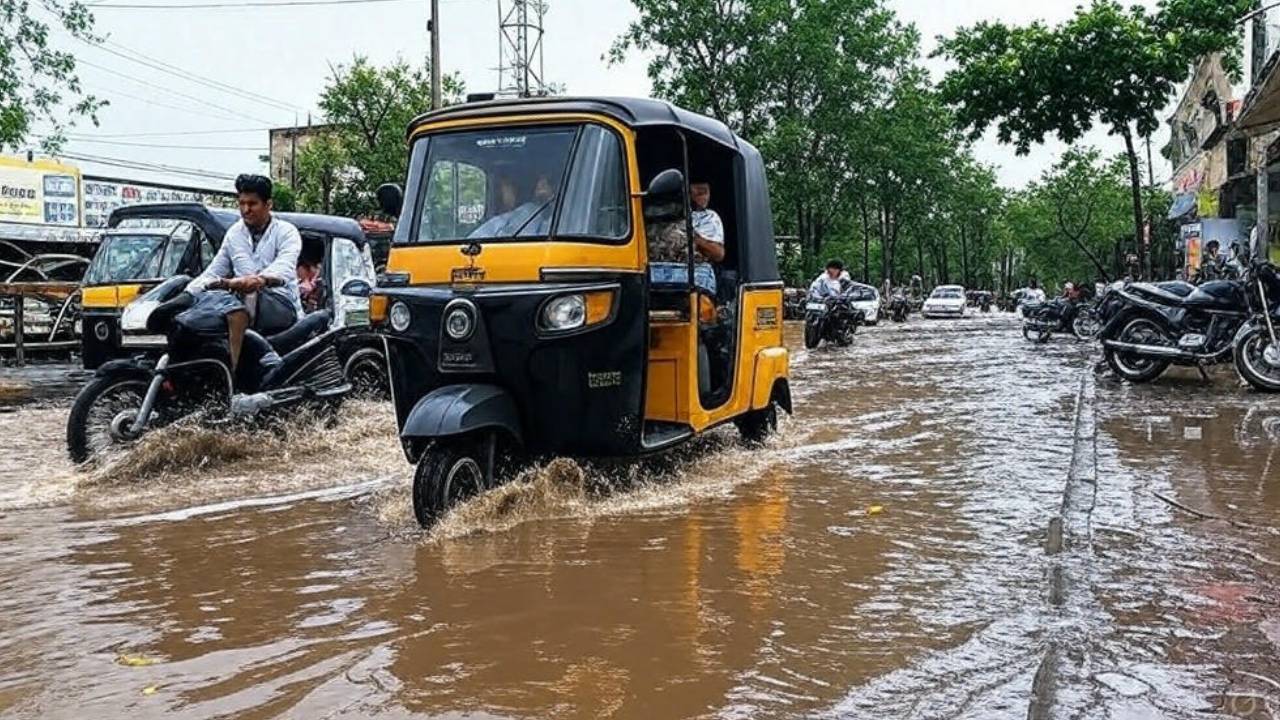
On Thursday, April , 2025, Bidar city and several parts of the surrounding taluk experienced a refreshing yet powerful thunderstorm accompanied by heavy rain. According to a report, the downpour brought a much-needed break from the heat, cooling down the region and leaving residents with mixed feelings of relief and concern.
The rain, paired with rumbling thunder, swept across multiple areas, offering a soothing change in weather. While no injuries or fatalities were reported, the storm did leave its mark. In Chikli (J) village of Aurad taluk, fierce winds knocked down an electric pole, hinting at the intensity of the weather event. Thankfully, the damage was minimal, and life continued with little interruption.
For the people of Bidar, this sudden burst of rain was a welcome surprise after days of warm weather. The stormy skies not only lowered temperatures but also painted a dramatic picture across the region. As the clouds rolled in, they brought a sense of calm to some, while others kept an eye out for any potential disruptions.
This weather shift highlights how unpredictable nature can be, especially in early spring. For those in Bidar, it’s a reminder to enjoy the cool moments while staying prepared for whatever the skies might bring next. Keep checking back for more updates on how this rainy spell impacts the area!
Bidar
Janawada Lake Rejuvenation: A Lifeline for Bidar Fishermen and a Promising New Hotspot for Tourists
Imagine a once-dry lake in Karnataka’s Bidar city, now buzzing with life, supporting local fishermen, and pulling in visitors from nearby cities. That’s the story of Janawada Lake—a stunning transformation that’s breathing new energy into the community and turning heads as a must-visit picnic spot. Thanks to the Mission Amrit Sarovar program under the Mahatma […]
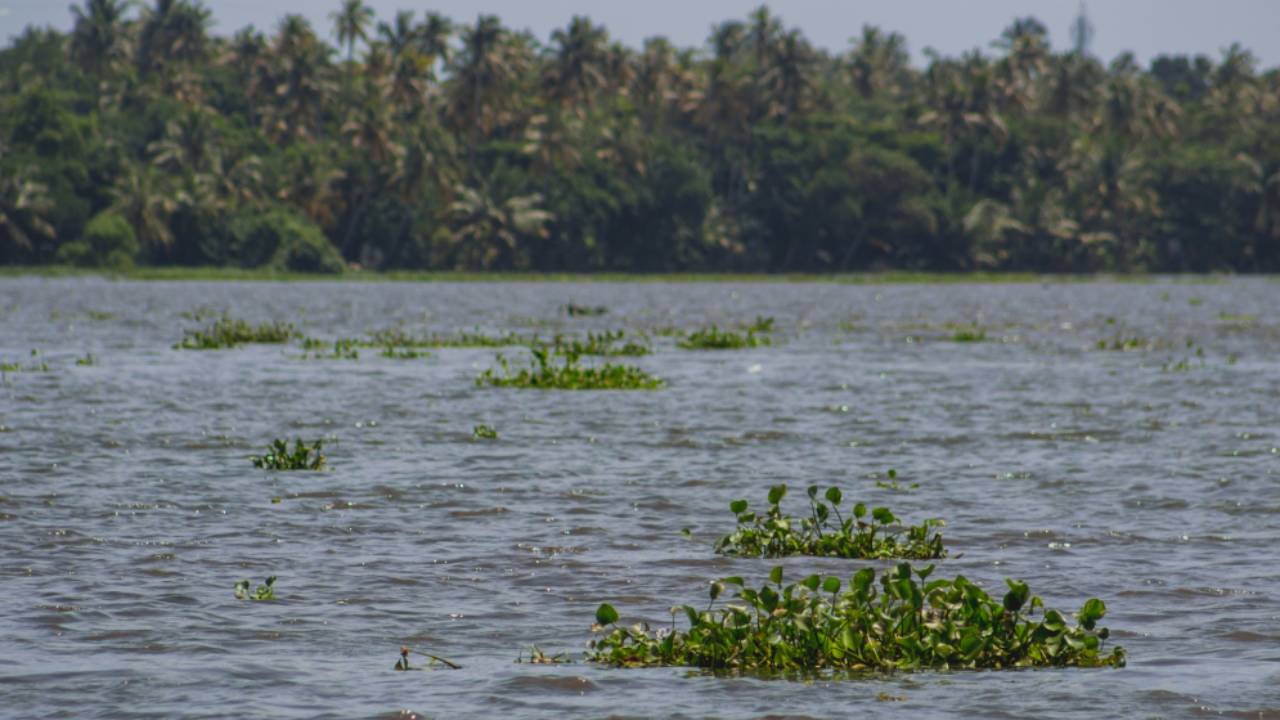
Imagine a once-dry lake in Karnataka’s Bidar city, now buzzing with life, supporting local fishermen, and pulling in visitors from nearby cities. That’s the story of Janawada Lake—a stunning transformation that’s breathing new energy into the community and turning heads as a must-visit picnic spot.
How Janawada Lake Rejuvenation Turned Into a Sustainable Source of Income for Local Fishermen
Thanks to the Mission Amrit Sarovar program under the Mahatma Gandhi National Rural Employment Guarantee Act (MGNREGA), this lake got a second chance. Back in 2022, the rejuvenation project kicked off, aiming to revive 91 lakes across Bidar district. Janawada was one of them, and boy, has it paid off! After two solid monsoon seasons, the lake is brimming again, proving that a little care can go a long way.
For the local fishing families, it’s been a game-changer. Two societies, made up of 65 hardworking members, are now thriving here, raising four popular fish species—goldfish, catla, mrigal, and rohu. In just two years, they’ve harvested around 10 quintals of fish, sending their catch to big markets like Bengaluru, Hyderabad, and Pune. It’s not just about the fish; it’s about steady income and hope for folks who’ve long depended on this land.
But it’s not all work and no play. Janawada Lake’s peaceful vibes and lush surroundings have caught the eye of tourists too. “It’s the natural beauty and easy access that make it a perfect getaway,” says Girish Badole, the Chief Executive Officer of Bidar Zilla Panchayat. Whether you’re from a neighboring village or just passing through, the lake’s charm is hard to resist.
Janamma, the Deputy Director of the Fisheries Department in Bidar, calls it an ambitious success. “We took on this project to bring ponds and lakes back to life, and Janawada is proof it’s working,” she says. The Sagar Society, which leases the lake for fish farming, has turned it into a sustainable hub—balancing livelihoods with nature.
So, next time you’re looking for a serene escape or a peek into a community reborn, Janawada Lake in Bidar might just be your spot. It’s more than a lake—it’s a story of revival, resilience, and a little slice of paradise in Karnataka.
-

 india2 years ago
india2 years ago“Major Crash of Sukhoi Su-30 and Mirage 2000 Fighter Jets in Madhya Pradesh”
-

 Sports2 years ago
Sports2 years agoWFI meetings on April 16, elections likely to be discussed
-

 india1 year ago
india1 year agoPM Modi Meets Deve Gowda for Seat Sharing Talks
-

 india1 year ago
india1 year agoBengaluru: False threat to bomb Raj Bhavan
-

 india2 years ago
india2 years ago“AIMIM to Contest 50 Seats in Upcoming Telangana Assembly Elections”
-

 Entertainment1 year ago
Entertainment1 year agoAnant Ambani: Controversy at the Ambani Pre-Wedding Bash
-

 Karnataka2 years ago
Karnataka2 years agoWomen have to show their Aadhaar to travel free on KSRTC bus
-

 Entertainment2 years ago
Entertainment2 years agoRajinikanth is Moideen Bhai in ‘Lal Salaam’



